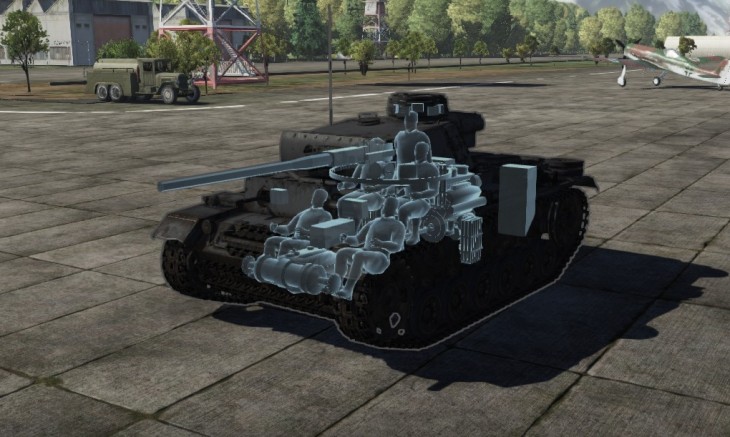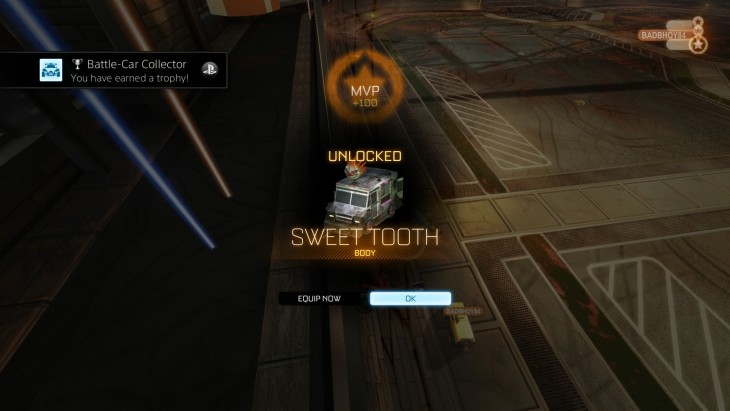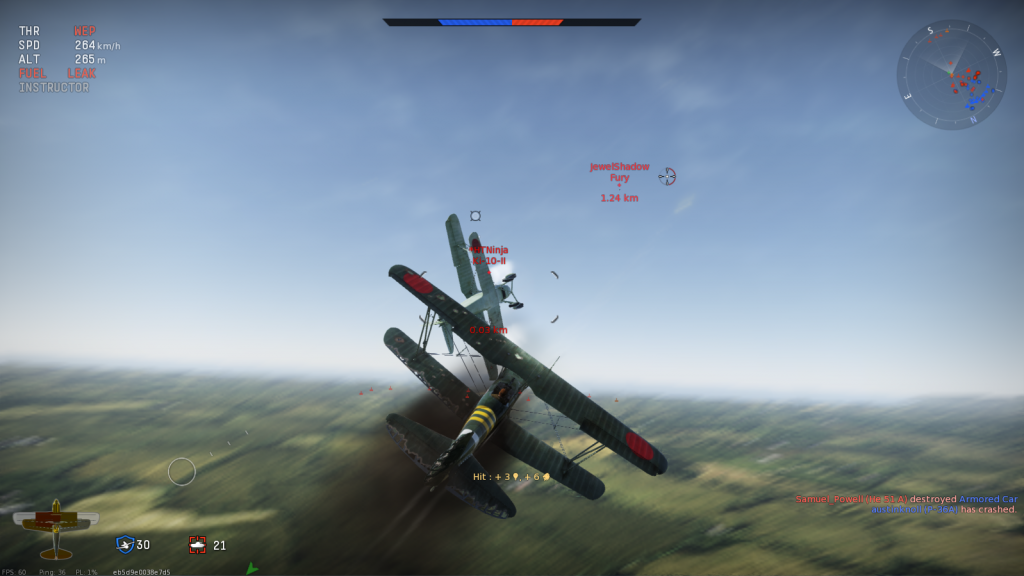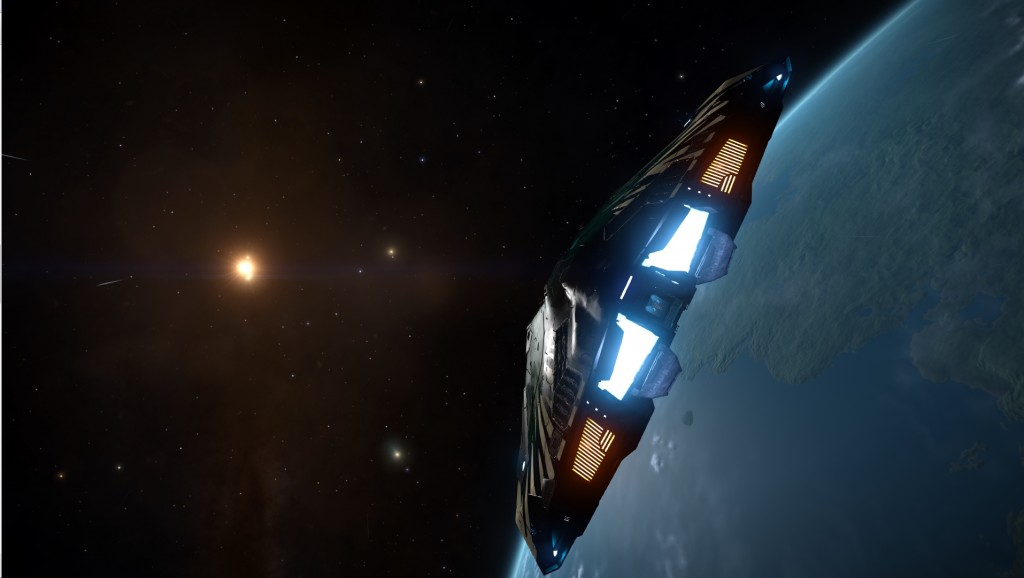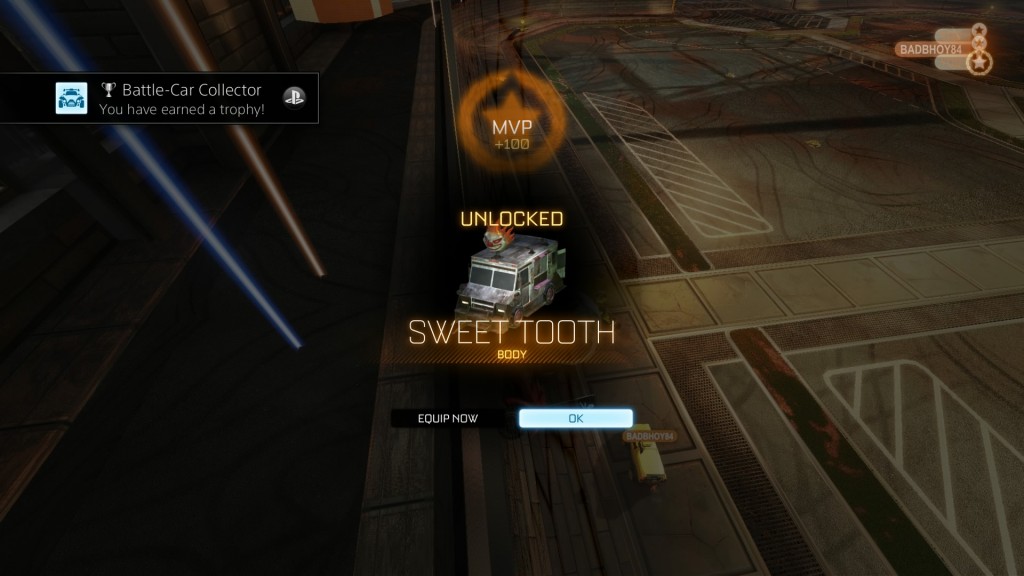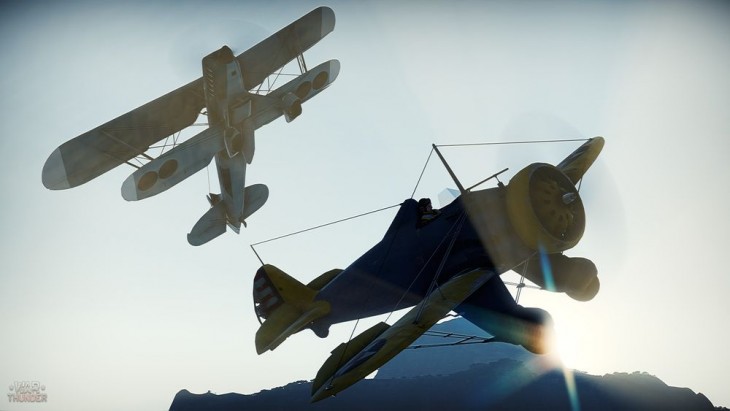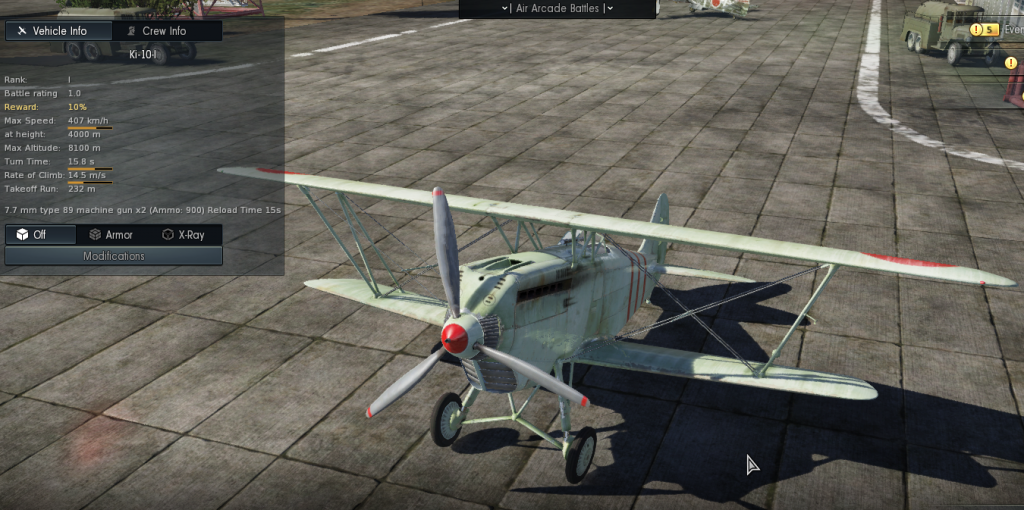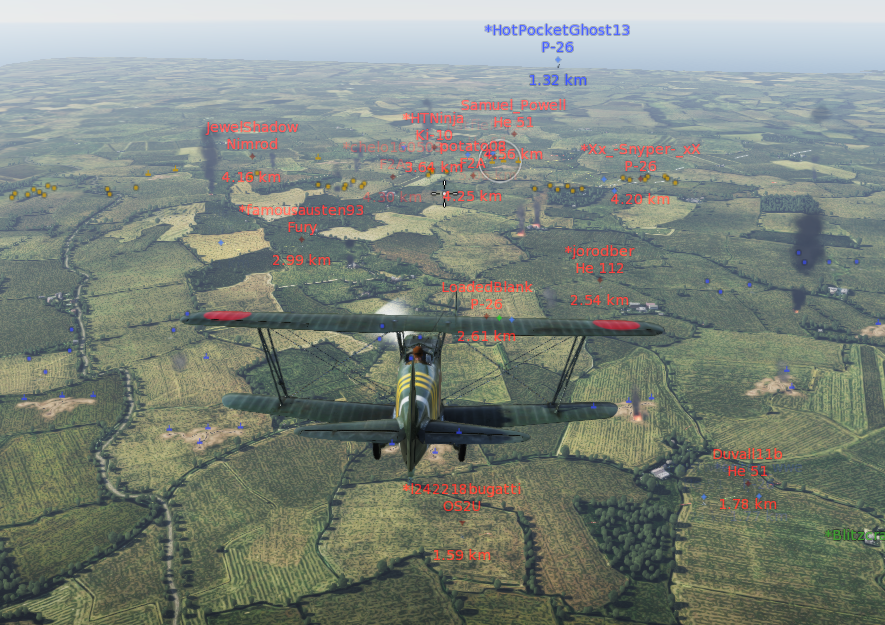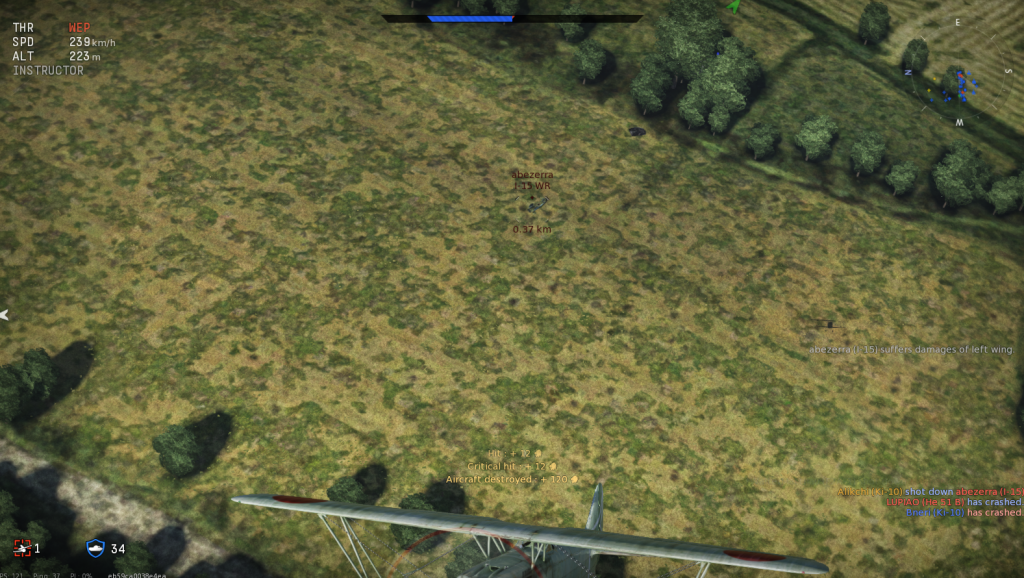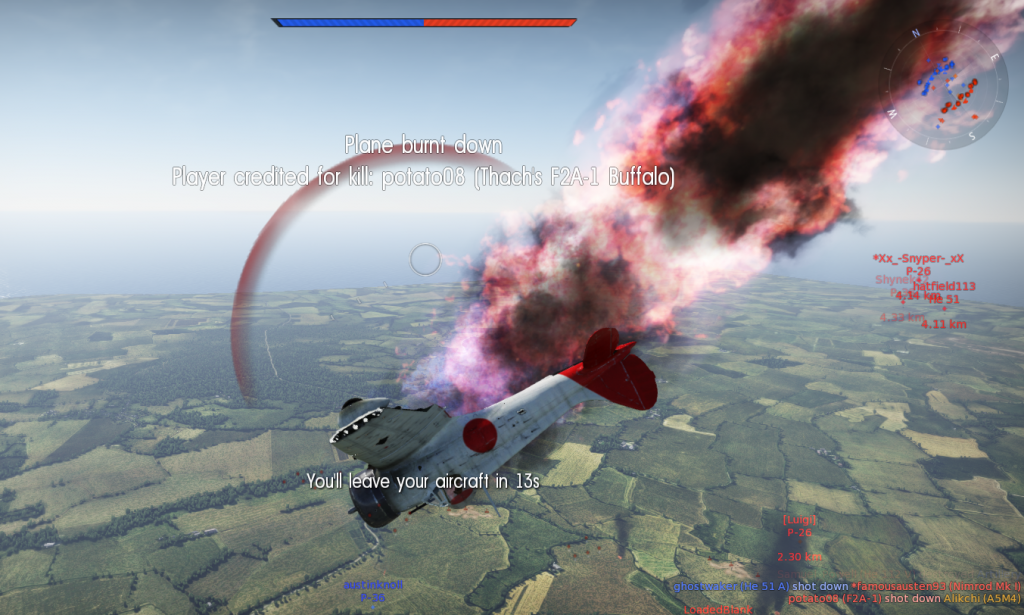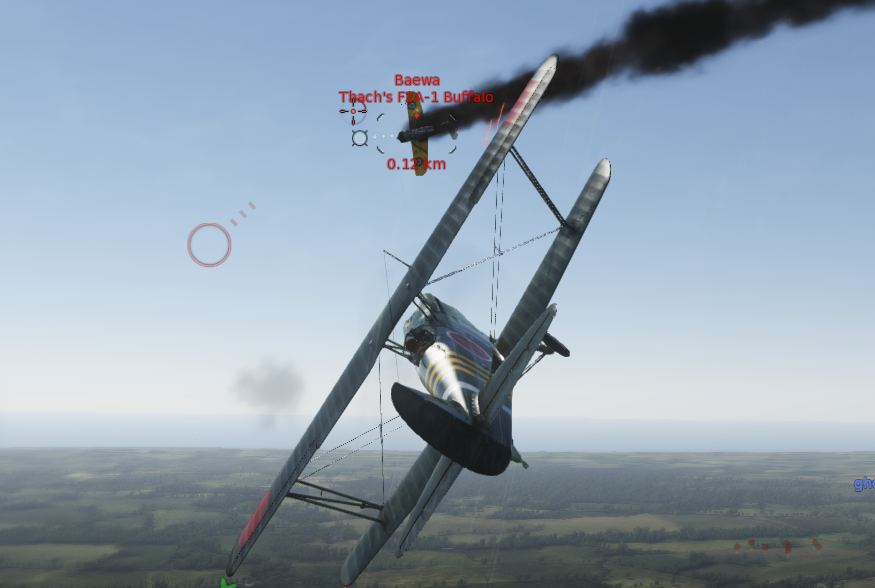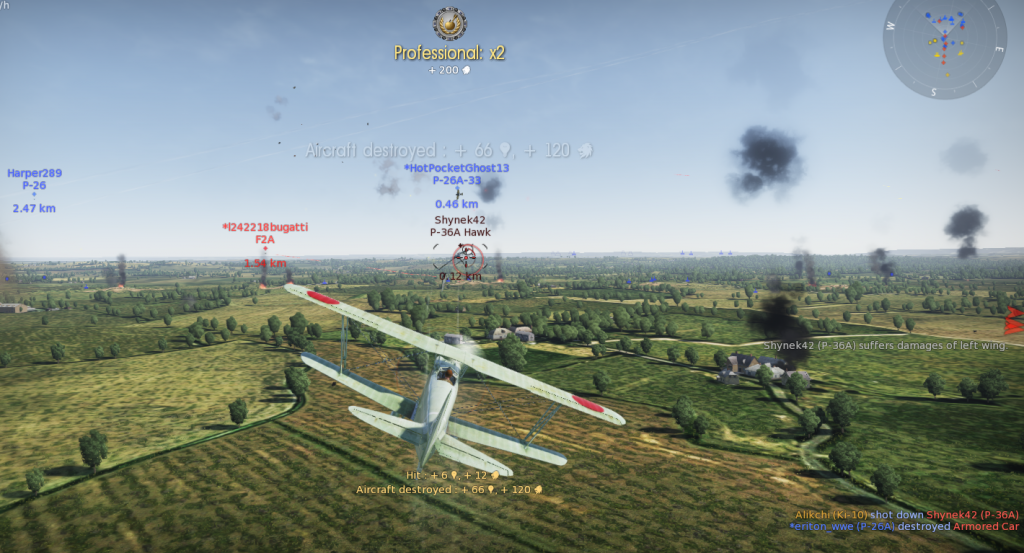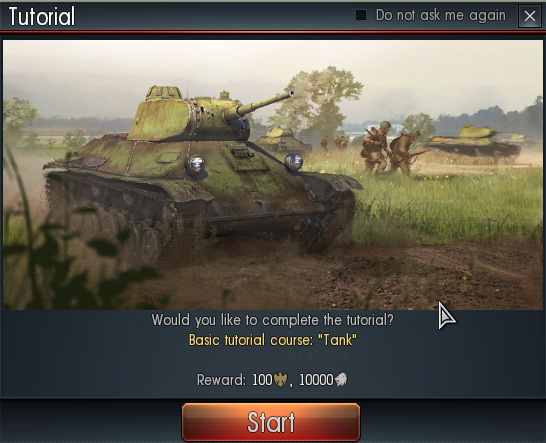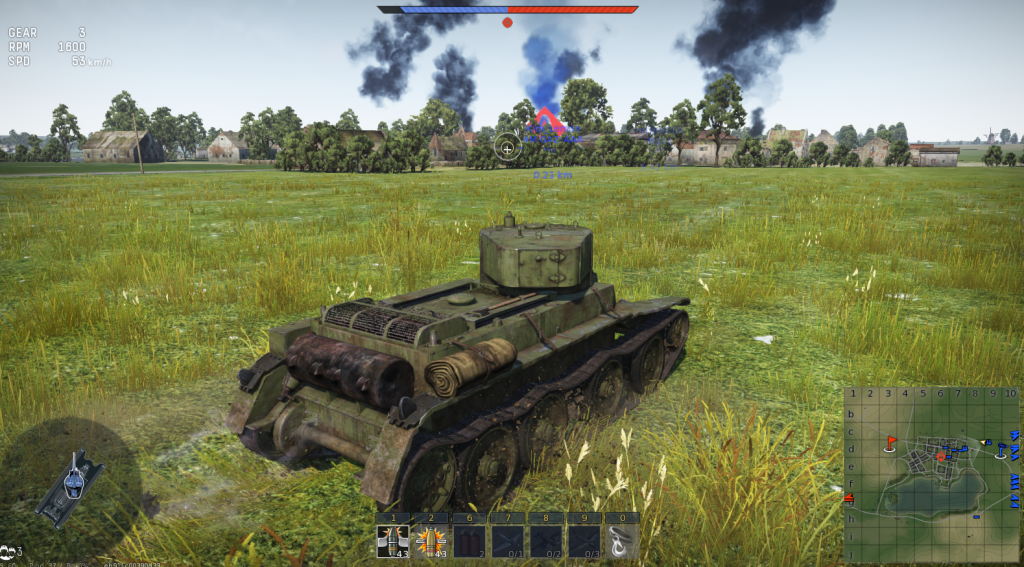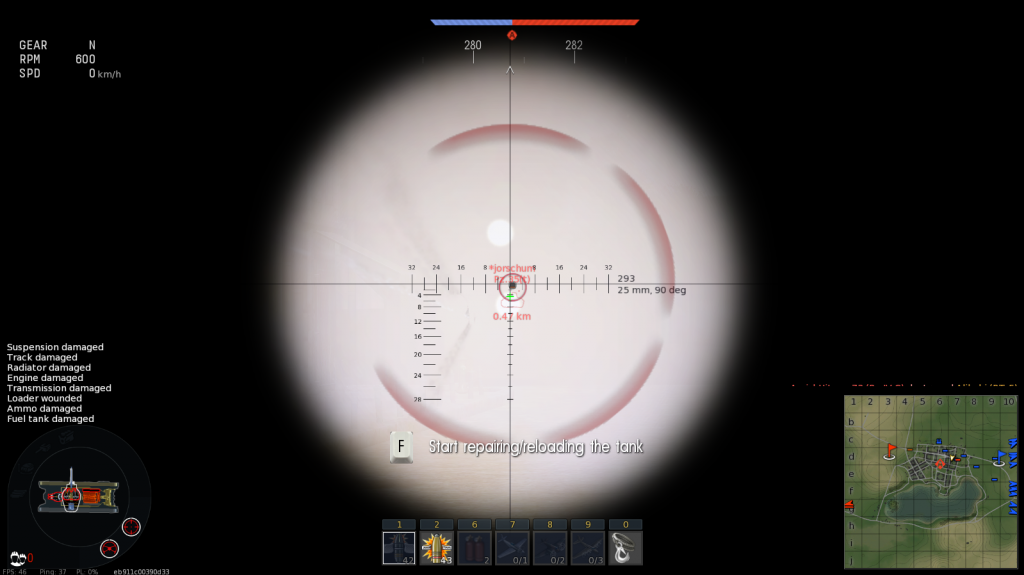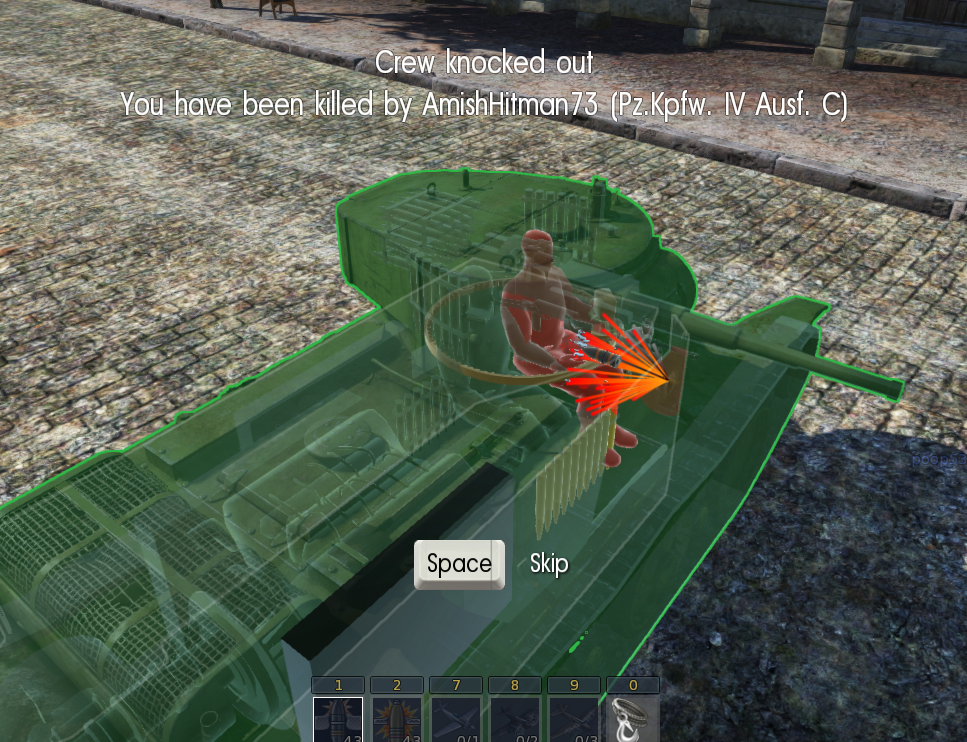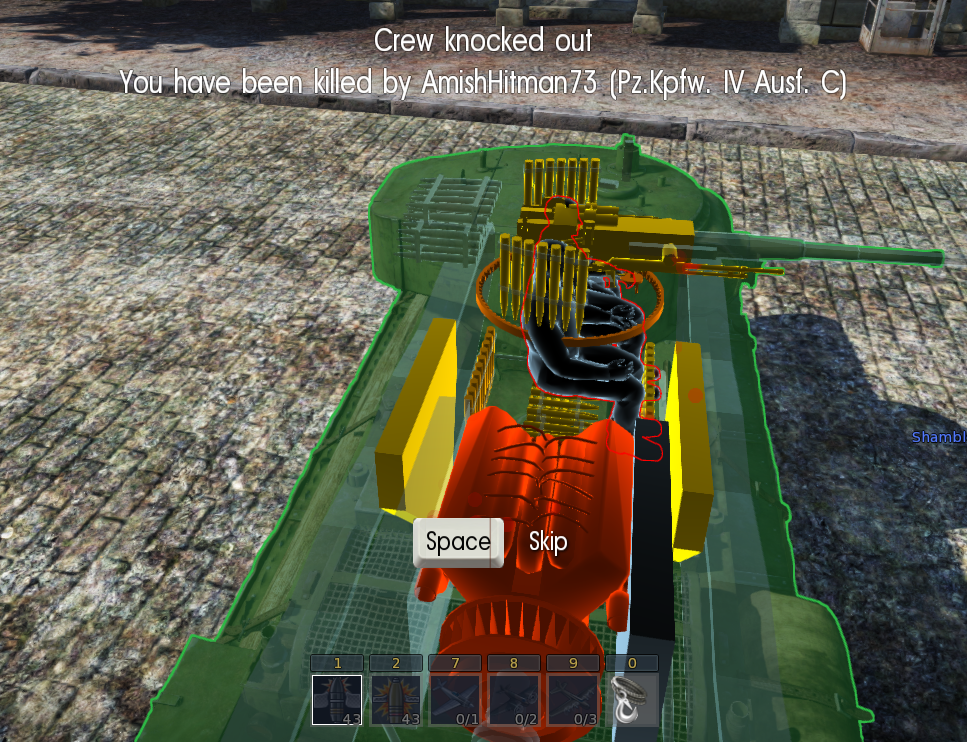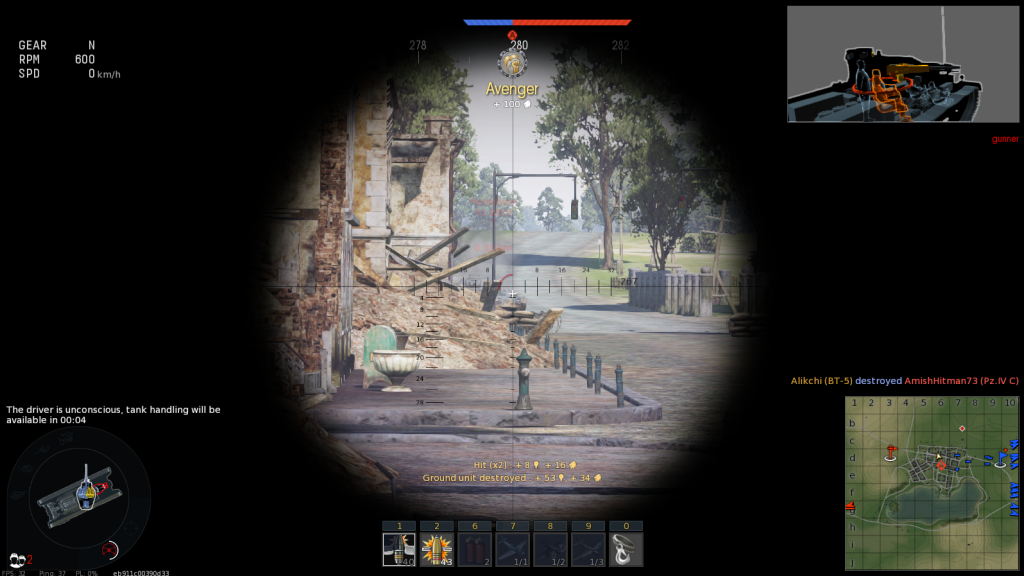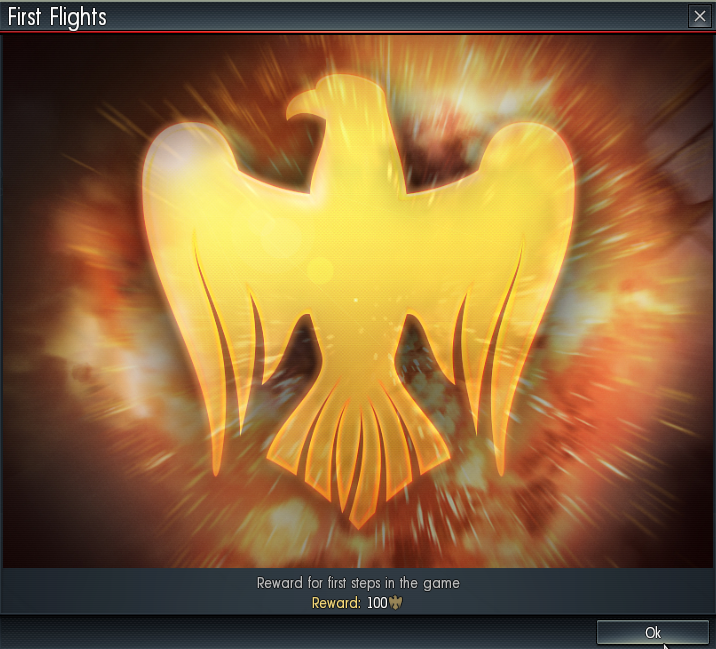War Thunder and World of Tanks are fairly close in terms of playerbase. While World of Tanks has a lead – and thus more players – War Thunder is expanding extremely quickly, buoyed by constant updates and Steam integration. However, between the two, War Thunder has the better tank mode by a long shot.
Why? The X-Ray system.
The Basics
The X-Ray system in War Thunder is extremely simple. Whenever you shoot somebody, a picture-in-picture window pops up and shows you how your round hit the tank, how it deflected or spalled, and how that affected the tank internals. Whenever you die, it does the same thing, but in reverse; you are shown how the shot that killed you blew apart your ammo reserves or ripped your crew to shreds. This system appears independent of player input, so all you have to do is glance at the side of the screen to see it.
Each of your tank’s internal components is modeled, from the ammo dumps to the tread motors to the gun loader to the entire crew, and is represented by semi-transparent texture-less grey models. It’s a very easy system to understand and get used to, and is really quite pretty; seeing the destruction of an enemy tank both in the main screen and through the play-by-play side window is an exhilarating feeling.
The only downside? It’s not in plane mode, probably because planes are more about continuous MG fire and less cannon shells exploding inside enemies.
Get To Know Your Tank And Crew
Besides being fun to look at, the X-Ray system offers something that you can only intuit or read a guide on in World of Tanks: where to hit an enemy to cause maximum damage and how to angle your tank to take the least amount of damage.
A big part of playing any multiplayer game is the feeling that you’re getting better as you play, either by understanding mechanics better or by improving your reaction times, decision-making skills, or other personal points of interest. World of Tanks has a problem – the problem that made me stop playing it, in fact – in communicating just what you’re doing wrong in a match. You can stick with your team, outflank the enemy, and shoot shells into their side all day, but if you don’t understand the principles of armor deflection and weak spots, you’ll get nowhere. While World of Tanks does explain this in the tutorial, it’s woefully silent on how to spot weak points and how to learn from your misfires.
By implementing the X-Ray system, War Thunder gave players a path to learn from experience, rather than from a tutorial. You can see in real-time the mistake you made – maybe it deflected off the front armor, or the spalling didn’t connect with any vital parts – and adjust accordingly. Of course, you’re usually dead by then, but hey, next life, right?
These are important tank warfare concepts that are not particularly intuitive to grasp. Telling someone sloped front armor has an actual thickness of 90mm and an effective thickness of 120mm (this is a hypothetical, don’t yell at me!) means nothing to the average person. While you can tell them why this is the case, only experience – the skills and knowledge gained in battle – will properly teach a player what exactly that means for the game.
As for the other way around, it teaches you how to better use basic defensive tank concepts such as presenting the proper side (or “sidescraping”) and using defilade. After all, you can see exactly the carnage your crew goes through whenever you take a SABOT round to the side. Also, let’s be honest; it humanizes the crew a little bit, even if it’s just as weak points in your tank. You learn which crewman goes where, which crewmen are expendable, and how you can minimize injury to essential personnel. It’s not the warm fuzzy emotional personalization of a Pixar film, but it definitely makes you understand your tank and crew more.
Nothing Is Perfect
War Thunder has plenty of problems. The arcade mode feels super restrictive on spawns, maps are way too large in many cases, and matchmaking feels off – getting one-shot by a tank two tiers higher than you, when you’re at tier 1 or 2, is not entirely uncommon. Still, the X-Ray system is not one of them. It’s an absolutely genius method to communicate mechanics, and more games need to incorporate such a system.


